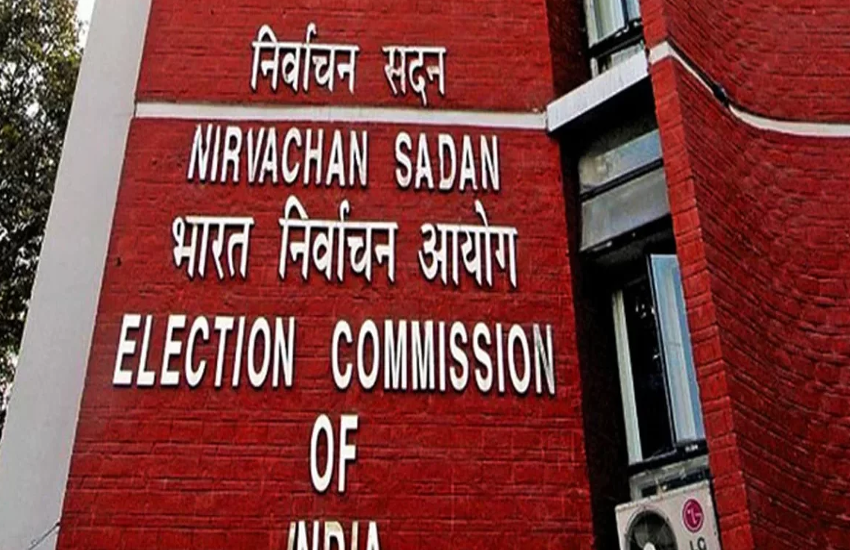
According to a recent report, many young people struggle with developing healthy romantic relationships and that the rates of misogyny and sexual harassment among teens and young adults are alarmingly high.
The report published by Making Caring Common also suggests that, while many adults are focused on the youth "hook-up culture," they commonly ignore or fail to address these two more pervasive problems.
"We hope that this report is a real wake-up call," said lead author Richard Weissbourd. "While adults and parents in particular, wring their hands about the 'hook-up culture,' research indicates that far fewer young people are hooking up than is commonly believed. This focus on the hook-up culture also obscures two much bigger issues that our research suggests many young people are struggling with: forming and maintaining healthy and fulfilling romantic relationships and dealing with widespread misogyny and sexual harassment. Unfortunately, we also found that most adults appear to be doing very little to address these serious problems."
The report is based on several years of research by Weissbourd and his research team, including surveys of over 3,000 young adults and high school students nationwide and scores of formal interviews and informal conversations. Weissbourd and his team spoke with many adults, who are key to young people, including parents, teachers, sport coaches and counselors.
Key findings from the report include the following:
1. Teens and adults tend to greatly overestimate the size of the "hook-up culture" and these misconceptions can be detrimental to young people. Research indicates that a large majority of young people are not hooking up frequently, and our research suggests that teens and adults tend to greatly overestimate the percentage of young people who are hooking up or having casual sex. This overestimation can make many teens and young adults feel embarrassed or ashamed, and can also pressure them to engage in sex when they are not interested or ready.
2. Large numbers of teens and young adults are unprepared for caring, lasting romantic relationships and are anxious about developing them. Yet it appears that parents, educators and other adults often provide young people with little or no guidance in developing these relationships. The good news is that a high percentage of young people want this guidance. Seventy percent of survey respondents (18 to 25-year-olds) reported wishing they had received more information from their parents about some emotional aspect of romantic relationships, and 65% indicated that they wanted guidance on some emotional aspect of romantic relationships in a health or sex education class at school.
3. Misogyny and sexual harassment appear to be pervasive among young people and certain forms of gender-based degradation may be increasing, yet a significant majority of parents do not appear to be talking to young people about it. In our national survey of 18 to 25-year-olds, 87% percent of women reported having experienced some form of sexual harassment during their lifetime, yet 76% of respondents to this survey had never had a conversation with their parents about how to avoid sexually harassing others. Majorities of respondents also had never had conversations with their parents about various forms of misogyny.
4. Many young people don't see certain types of gender-based degradation and subordination as problems in our society. Forty-eight percent of our survey respondents either agreed or were neutral about the idea that "society has reached a point that there is no more double standard against women." Thirty-nine percent of respondents either agreed or were neutral that it's "rare to see a woman treated in an inappropriately sexualized manner on television." About 1 in 3 male respondents thought that men should be dominant in romantic relationships.
5. Research shows that rates of sexual assault among young people are high. But our research suggests that a majority of parents and educators aren't discussing with young people basic issues related to consent. While the report did not focus on consent and sexual assault, our survey data suggests that many adults are also not talking to young people about these important issues. Most of the respondents to our survey of 18 to 25-year-olds had never spoken with their parents about "being sure your partner wants to have sex and is comfortable doing so before having sex"(61%), assuring your "own comfort before engaging in sex" (49%), the "importance of not pressuring someone to have sex with you"(56%), the "importance of not continuing to ask someone to have sex after they have said no" (62%), or the "importance of not having sex with someone who is too intoxicated or impaired to make a decision about sex" (57%). A large majority of respondents who had had these conversations with parents described them as at least somewhat influential.
In light of the report findings, Making Caring Common developed the following tips for parents and other adults to help guide these important conversations with young people.
1. Talk about love and help teens understand the differences between mature love and other forms of intense attraction. Regardless of their own relationships successes and failures, all adults can distill their wisdom and share it in age-appropriate ways with teens and young adults. They can also explore with teens and young adults questions at the core of learning how to love and develop healthy relationships. For example, what is the difference between infatuation, intoxication and love?
2. Guide young people in identifying healthy and unhealthy relationships. Adults can ask questions that help teens identify the markers of healthy and unhealthy relationships, and can explore with them examples of each in their own lives and in the media. One important marker is whether a romantic relationship makes both partners more respectful, compassionate, generative, and hopeful.
3. Go beyond platitudes. Important as it is to tell young people to "be respectful," many teens don't know what this actually means in different romantic and sexual situations. Adults need to identify for teens common forms of misogyny and harassment, such as catcalling or using gender-based slurs, and they need to talk to teens specifically about what respect and care concretely mean in any type of romantic relationship.
4. Step in. When parents and other adults witness degrading, sexualized words or behaviour, it's imperative that they intervene. Silence can be understood as permission. Adults need to talk much more with each other and with school counsellors and other experts about what types of interventions are likely to be effective and try out various approaches. It's often important in school and community settings to enlist teens and young people themselves in preventing these behaviours.
5. Talk about what it means to be an ethical person. Helping young people develop the skills to maintain caring romantic relationships and treat those of different genders with dignity and respect can also help strengthen their ability to develop caring, responsible relationships at every stage of their lives and to grow into ethical adults, community members, and citizens. It's important for adults to connect discussion with teens and young adults about romantic and sexual relationships and misogyny and harassment to ethical questions about their obligation to treat others with dignity and respect, intervene when others are at risk of being harmed, and advocate for those who are vulnerable.
-ANI







![BJP's Kapil Mishra recreates Shankar Mahadevan’s ‘Breathless’ song to highlight Delhi pollution [WATCH] BJP's Kapil Mishra recreates Shankar Mahadevan’s ‘Breathless’ song to highlight Delhi pollution [WATCH]](https://images.catchnews.com/upload/2022/11/03/kapil-mishra_240884_300x172.png)

![Anupam Kher shares pictures of his toned body on 67th birthday [MUST SEE] Anupam Kher shares pictures of his toned body on 67th birthday [MUST SEE]](https://images.catchnews.com/upload/2022/03/07/Anupam_kher_231145_300x172.jpg)






